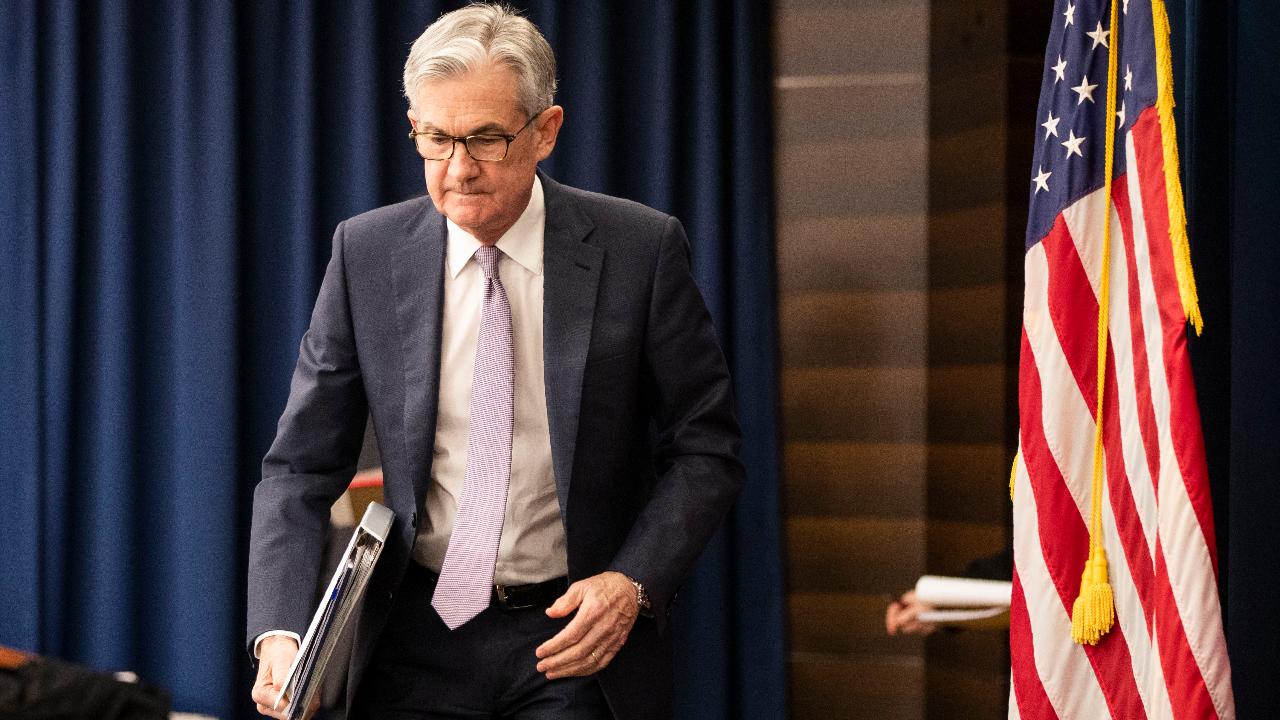Fed's Powell says US economy 'may need more support' for recovery to be 'robust'
Congress has already passed four economic-relief plans, including the $2.2T CARES Act
Get all the latest news on coronavirus and more delivered daily to your inbox. Sign up here.
Federal Reserve Chairman Jerome Powell said Wednesday more federal stimulus may be needed to ensure a "robust" economic recovery from the coronavirus pandemic.
"We’ve seen an extraordinary, historically large reaction," Powell said during a virtual press conference following the central bank's two-day meeting. "But I would say it may well be the case that the economy may need more support from all of us if the recovery is to be a robust one."
So far, Congress has passed four massive stimulus packages to blunt the economic pain from the virus outbreak, including the $2.2 trillion CARES Act signed into law at the end of March, which established the Paycheck Protection Program, expanded unemployment benefits by $600 per week and sent one-time payments of up to $1,200 to Americans who earn less than $99,000.
FED PLEDGES AGGRESSIVE ACTION TO SUPPORT US ECONOMY
But lawmakers may need to undertake additional fiscal stimulus efforts, Powell said, to deal with the crisis, which has paralyzed the U.S. economy. In the five weeks since states implemented strict stay-at-home mandates, more than 26 million Americans have filed for unemployment benefits, bringing the jobless rate close to 16 percent.
Hours before Powell's press conference, the Commerce Department revealed the economy shrank by 4.8 percent in the first three months of the year, the sharpest decline since the financial crisis more than a decade ago, solidifying economists' expectations that the U.S. has been forced into a recession.
The central bank chief declined to provide specific policy measures that Congress should consider, but did say policies that protect workers, businesses and households from avoidable insolvency will be "key."
US ECONOMY SHRANK BY 4.8 PERCENT IN FIRST QUARTER
"It'll come with a hefty price tag," Powell said. "But we would come out of this with less long-run damage to the economy."
The Fed has already taken a range of extraordinary actions to support the economy, including slashing interest rates to near-zero, purchasing an unlimited amount of Treasurys (a practice known as quantitative easing) and launching crisis-era lending facilities to ensure that credit flows to households and businesses. It has also said it will buy corporate bonds and lend to states and cities.
In the past six weeks, the Fed has pumped $2.3 trillion into the economy, an unprecedented amount.
During their two-day meeting this week, policymakers pledged to hold rates at the current range between 0 percent and 0.25 percent until they're "confident that the economy has weathered recent events and is on track to achieve its maximum employment and price stability goals.”
"We will use our powers to make sure the recovery is as robust as possible," Powell said.




















